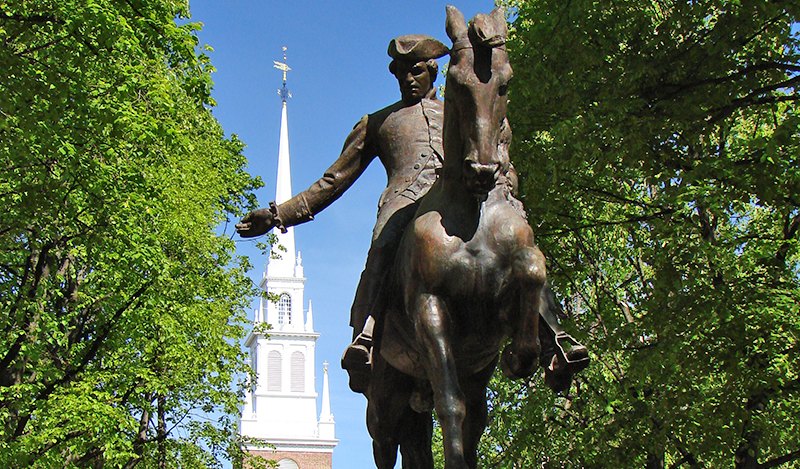Pastor
Bruce Wilkinson once told a story about a student at Taylor University, a
Christian college in Indiana. Years ago, they were pleased to learn that an
African student, Sam, was going to be enrolling in their school. This was
before it was commonplace for international students to come to the U.S. to
study. He was a bright young man with great promise, and the school felt
honored to have him. When he arrived on campus, the president of the University
took him on a tour, showing him all the dorms.
When the
tour was over, the president asked Sam where he would like to live. The young
man replied, “If there is a room that no one wants, give that room to me.” The
president turned away in tears. Over the years he had welcomed thousands of
Christian men and women to the campus, and none had ever made such a request.
“If there
is a room that no one wants, give that room to me.” That's the kind of meekness
Paul listed as evidence of the fruit of the Spirit (Gal. 5:23). Our Lord
preached in the Sermon on the Mount, ““Blessed are the meek, for they shall
inherit the earth” (Matt. 5:5). Peter, who didn’t learn meekness until after
failure, wrote that person who is meek and quite in spirit “is precious in the
sight of God” (1 Peter 3:4). James also added, “God is opposed to the proud,
but gives grace to the humble” (James 4:6).
Meekness
says, “If there is a job that no one wants to do, I'll roll up my sleeves and
get dirt under my fingernails. If there's a kid that no one wants to eat lunch
with, I'll eat with that kid. If there's a piece of toast that's burnt, I'll
eat that piece. If there's a parking space that's far away from the church,
I'll gladly walk the extra distance. If there's a burden to bear, I'll shoulder
the heavy load. If there's a sacrifice someone needs to make, I'll be the one
to stand in the gap.”
Meekness
is a spiritual attribute that seems very much lost in our aggressive,
self-centered culture. Because people associate it with weakness, or being a
push-over, most today do not admire others for being meek. A modern English
dictionary or thesaurus makes it clear why meekness is associated with
weakness. Notice its synonyms as listed in the Reader's Digest Oxford Complete Word Finder: tame, timid, mild,
bland, unambitious, retiring, weak, docile, acquiescent, repressed, suppressed,
spiritless, broken, and wimpish. Sounds like a description for a place-faced,
effeminate altar boy with the fortitude of a wet noodle. In a world dominated
by the strong—ruthless dictators, callous drug traffickers, powerful corporate
leaders—no one wants to be the wimp everyone takes advantage of.
We are
told that Jesus was gentle, lowly and meek (Matt. 11:29), but at the same time
when we study His heroics in the Gospels we learn that He certainly not a limp
dishrag either. Jesus was strong enough to drive the money changers and corrupt
religious hucksters out the temple with a homemade bullwhip (John 2:13-17), yet
tender enough to entertain small children (Mark 10:13-16). He was fearless
enough to command the winds and waves to cease their howling, and turned the
raging Sea of Galilee into a glassy pond (Mark 4:35-41), yet He was humble
enough to stoop and wash the grimy feet of His disciples (John 13:1-11). Jesus
often stood to-to-toe with the Pharisees and lashed them with scathing words of
judgment and condemnation (Matt. 23:1-38), yet He stood at the grave of Lazarus
and wept tears of sorrow (John 11:35). What a stunning contrast of toughness
and tenderness.
I think
it’s safe to say that we have misunderstood the true meaning of meekness,
especially in relationship to Jesus’ example. Perhaps, the best description we
should adopt is “strength under control.” Picture a wild stallion that has been
broken and is now tamed. That stallion still has as much power as when he was
wild, but now that power is bottled up for the master's use. There is a wonderful
cooperation between a powerful horse and its rider. An animal of tremendous
size and strength, seven or eight times the weight of a man, submits itself to
its master’s control. A horse may race, leap, turn, prance, or stand motionless
at the rider’s slightest command. That’s strength under perfect control and
that defines the Christian concept of meekness.
When we
willingly place ourselves under the control of God, we are following the
example of Jesus while He lived on this earth. He submitted His power to the
Father’s will (John. 5:30; 6:38; Heb. 10:9). So there is actually great
strength in meekness. It’s the power of God’s Spirit working through us when we
yield to Him.
